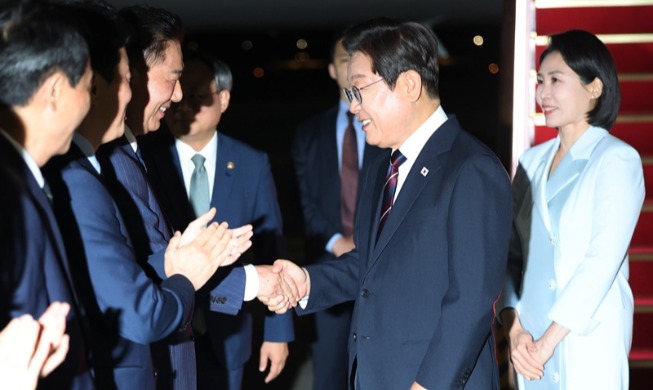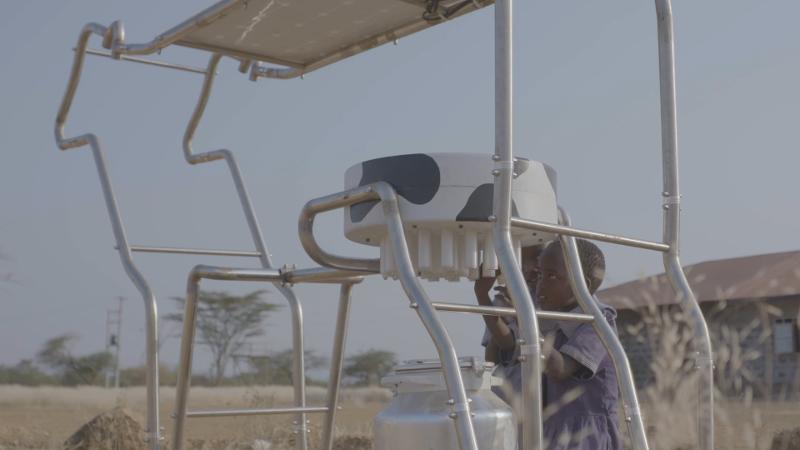
The Solar Cow project by the Korean startup Yolk offers a small amount of electric power that low-income households in developing countries need daily. Shown here is one of the company's charging stations in an African country. (Yolk)
By Yoon Hee Young
Uiwang, Gyeonggi-do Province
A "cow" encourages children in African villages to go to school and light houses at night.
The project Solar Cow consists of a solar-power charging system distributed by the Korean startup Yolk. The company has installed Solar Cow stations at schools in Africa to offer students "Solar Milk," a supplementary battery shaped like a milk bottle. The students can attend classes at the school while their batteries are charged by the station.
Launched in 2018, the project has created an environment for African children to attend school and get an education instead of working. The idea came from the realization that most Africans have a mobile phone regardless of socioeconomic level but lack the money to pay for the power to charge their phones.
Before the station were installed, children at schools had to walk five to six hours every day to charging stations to charge their phones, but with Solar Cow, they can charge them at school free.
This is the observation of Yolk founder and CEO Chang Sung-un, who said electric power, which is both expensive and often scarce in Africa, can be a powerful substitute for wages earned from child labor.
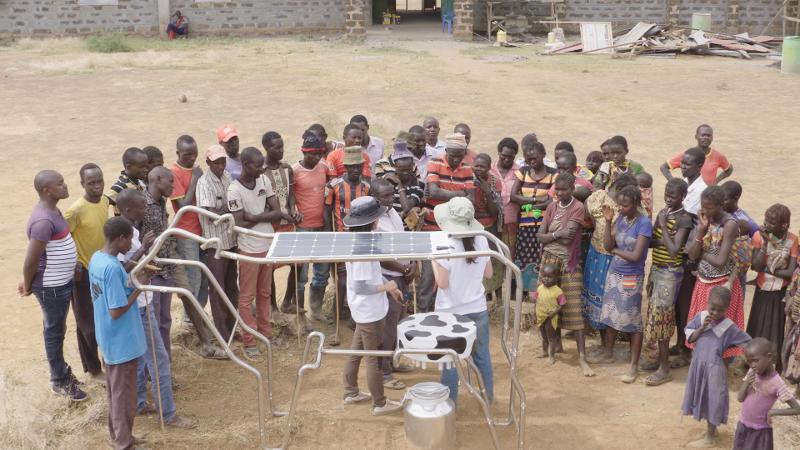
Yolk in 2018 installed its first Solar Cow charging station in the small village of Pokot, Kenya. (Yolk)
A design major at the School of Art Institute of Chicago, Chang started her business career with "Solar Paper," a smartphone charger that uses solar energy. She later turned her attention to developing countries in Africa in need of solar energy and headed to the continent to help children there.
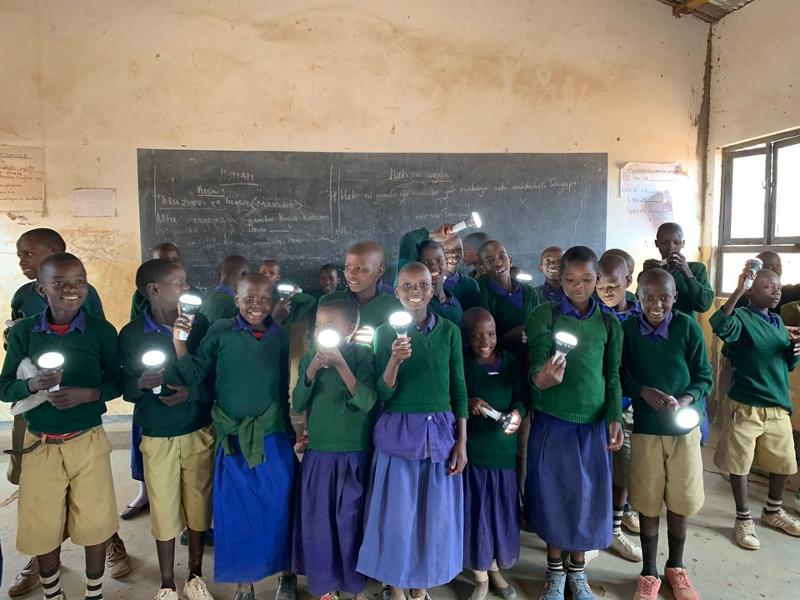
Students in African countries including Kenya arrive at their school, allow four to five hours for their batteries to be charged by a Solar Cow station and attend classes while waiting. (Yolk)
The project's trial operation was conducted in the small western Kenyan village of Pokot in 2018, and about 10 additional Solar Cow stations have been added in rural villages in Kenya, Tanzania and the Democratic Republic of Congo. "The installation of one Solar Cow station allows 250 villagers to use it and 25 children to return to school," Chang said.
"What's important is not just supplying energy but also to induce children to attend school every day," she added. "Therefore the battery was developed to be charged just enough for one day per household."
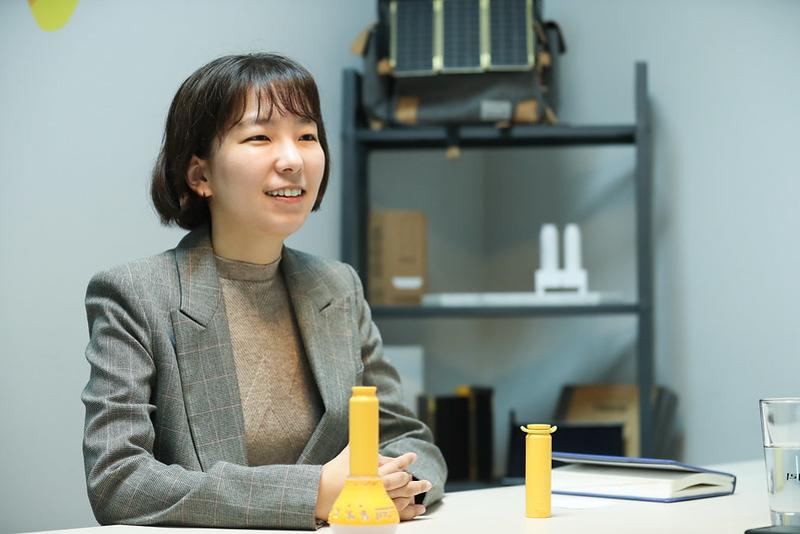
Yolk founder and CEO Chang Sung-un presented the results of Solar Cow, a P4G partnership project, at the 2021 P4G (Partnering for Green Growth and the Global Goals 2030) Seoul Summit from May 30-31. (Kim Sunjoo)
Time magazine of the U.S. named Solar Cow to its list of "Best Inventions 2019." For its accomplishments in sustainable education and eco-friendly and economic energy supply, Yolk was the first Korean company designated a P4G partner.
The company presented the results of Solar Cow at the 2021 P4G (Partnering for Green Growth and the Global Goals 2030) Seoul Summit from May 30-31 as an exemplary P4G partner as well as a leading project in energy.
Chang said, "I hope that the example of Solar Cow is an opportunity to inspire the potential to break structural inequality through innovation."
While the company has raised funds through collaborations with or subsidies from international organizations, businesses and government bodies, it is now expanding its project through crowdfunding. It generated this year USD 100,000 from the U.S. crowdfunding platform Kickstarter, and from May 30, the opening day of the P4G summit, it began a fundraiser to send children in Africa to school.
hyyoon@korea.kr
Most popular
- Military discharge sets stage for reunion of all 7 BTS members
- 'We are back!' BTS Festa heralds hyped return of K-pop phenom
- K-pop streaming on Spotify skyrockets 470-fold in 10 years
- Presidents Lee, Trump discuss tariff deal in first phone talks
- President Lee leaves for G7 Summit in Canada on first int'l trip
